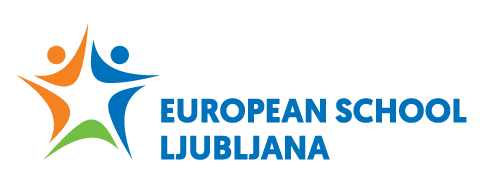NATURAL SCIENCES
Integrated Sciences S1-S3
At the European School, students in the Natural Sciences explore scientific principles and how they relate to the world around them. From the start of Secondary School in year 1, students delve into Integrated Sciences, where they investigate everyday occurrences and phenomena. Through hands-on experiments, they learn foundational scientific techniques and methodologies.
This early education serves as the groundwork for studying Biology, Chemistry, and Physics, which become individual subjects beginning in year 4. In each of these fields, students develop a broad understanding of the subject. Beyond acquiring factual knowledge as outlined in the curriculum, they also learn about scientific investigation methods, how to assess scientific theories, and the limitations of these ideas.
Biology S4-S5
The course builds upon the groundwork laid in Integrated Science in S1-3. The course aims to give students an understanding of the structure and function of living things, from cells to organisms, and of the theory of evolution that frames scientists’ understanding of the history and current state of life on Earth.
Chemistry S4-S5
Chemistry is one of the fundamental sciences studying matter. Students develop essential chemical knowledge and skills that also help them later in life, such as problem solving, critical thinking etc. Chemistry course is based on theoretical and practical approach, where students can apply their knowledge and further develop their understanding of Chemistry.
Physics S4-S7
Physics is a natural science that explores the fundamental principles governing the behaviour of matter and energy. It seeks to understand and describe how particles move, behave, interact, and change over time. In physics, we observe natural phenomena, use mathematical models to describe them, and predict the outcomes of similar events.
The main goal of teaching physics is to improve students’ understanding of the world around them while also encouraging their curiosity and exploration in a safe and educational way. Students gain a basic understanding of physics as part of their integrated science lessons in S1-S3, but they start attending dedicated physics lessons in S4. In S4 and S5, students have two periods per week of mandatory physics lessons.
Those who wish to pursue a deeper understanding can choose physics as one of their optional subjects in S6 and S7, where they have four lessons per week. This study concludes with a written or oral Baccalaureate exam.
Biology 4p 6-7
Students choosing this option should have been successful in the S4–S5 compulsory course and be prepared to take on a greater degree of complexity in content and approach, including mathematical competencies.
In both grades, the course approaches biology using four different scales: Cellular, Human, Earth, and Time. The aim is to provide students with well-rounded knowledge in theory and historical approaches, while also staying up-to-date with new discoveries and current events, thus preparing students for potential success in science studies at university.
Chemistry 4P S6-S7
Students may choose Chemistry as a 4-period course at the end of year S5. They continue acquiring chemical and scientific knowledge through an inquiry-based approach. Each topic includes multiple laboratory practicals that help students further develop their skills. This contributes to a deeper understanding of how the natural sciences work and fosters a positive attitude towards Chemistry and the natural sciences.
STS S6-S7
This course is open to anyone, but mandatory for students with more interest in Human Sciences. Instead of theory, it focuses more on the content and how scientific knowledge is used in everyday life. Moreover, how biology is connected with other sciences and how it is used in everyday life.
General topics are:
· Brains, minds, intelligences, and learning – Human understanding of understanding—our own, other organisms, machine-based.
· Climate Change and Biodiversity – How our planet’s climate is changing, and what it means for us and all living things on Earth.
· Developing Technologies – Thinking through our increasing power to manipulate and control ourselves and the world around us.
· Energy – How everything happens: energy sources, transformation, use, and conservation.
· Food, Nutrition, and Health – What we eat: exploring food production, distribution, consumption, processing, politics, nutrition sciences, marketing, and personal health.
· Personal and Public Health – Health for individuals and groups: infectious, systemic, and environmental diseases, and how we protect ourselves and each other.
· Water – The most abundant natural resource for us and all living things on Earth.


